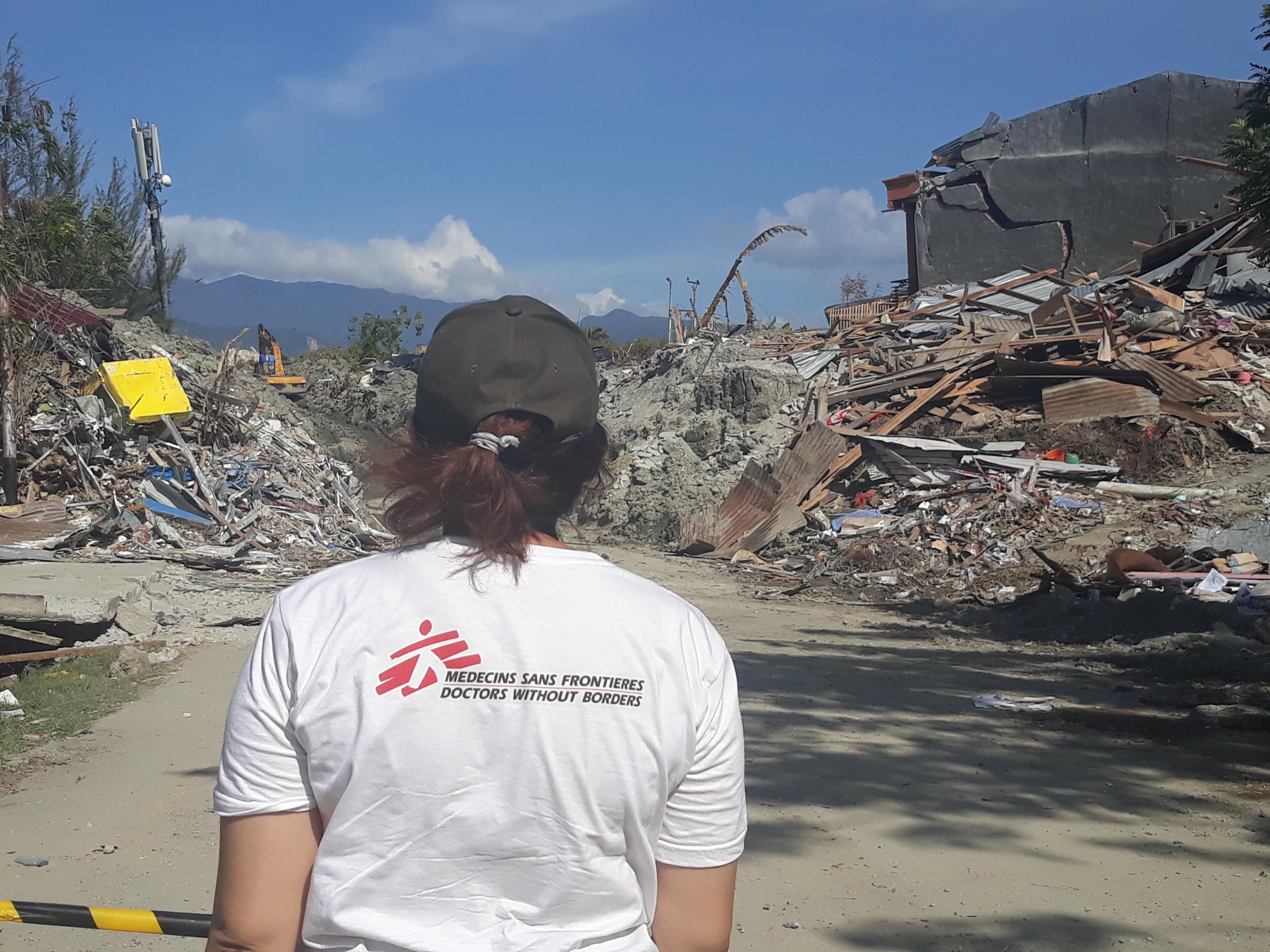Médecins Sans Frontières (MSF) is wrapping up its emergency response in Central Sulawesi, Indonesia, following the earthquake and tsunami that hit the province on 28 September, causing significant damage and loss of life.
As of 30 October, 2,101 people are known to have died. A further 4,438 people have been seriously injured.
Search and rescue operations were stopped on 12 October. According to figures released by Indonesia’s National Disaster Management Agency (BNPB), at least 1,373 people have been reported missing.
Reacting to the disaster
“The Government of Indonesia, its local authorities and local non-governmental organisations were quick in reacting to the disaster,” explains Daniel von Rège, the country director of MSF in Indonesia.
“MSF, as an international humanitarian medical non-governmental organisation, has been complementing these efforts and providing for the gaps in the response,” Daniel explains.
We will continue our mental health activities into mid-December, prioritising individuals in communities but also offering further training to health staff, to help them continue to offer much-needed mental health support to the affected populations.
In the second week of November we finalised the construction of a temporary health centre in Baluase, south of Palu, and the installation of latrines and water tanks in selected camps for internally displaced people. This marked the end of our logistical support in Palu.
We also ended our clinical activities on 14 November, following an assessment of the community health centres (Puskesmas) and their ability to meet the health needs of the population.
When our team left, the Puskesmas were working at 80 to 90 per cent capacity and had already restored the health services and programmes they had been running prior to the earthquake, tsunami and subsequent liquefaction.



